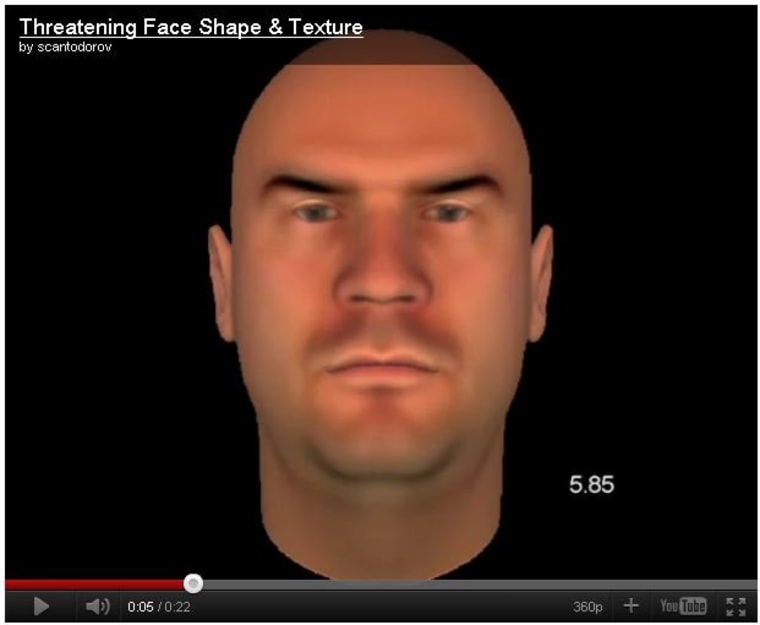While facial recognition programs are increasingly being used for various purposes — including identifying London rioters — researchers are going one step further and designing programs that will be able to read human expressions.
The Atlantic's Rebecca Rosen reports on a new software program that seems to be able to match up with perceptions of people, and in a test case, celebrities.
In the video below, the "threatening" expression comes through loud and clear, as did expressions of surprise and wonder. The video is one in a series of expressions on scantodorov's YouTube channel, that show the program in action.
Todorov is one of the researchers who wrote "Automatic Prediction of Facial Trait Judgments: Appearance vs. Structural Models," which built upon the premise that "observers use face information to infer personality characteristics" and used that to apply to improving the interaction between computers and the people using them.
The scientists experimented with different degrees of expressions, to see how sensitive the program could be in capturing and interpreting facial expressions.
And they also explain why it's important:
In a world characterized by an ever growing amount of interactive artifacts, it is important to develop better human-centric systems that incorporate human communicative behaviors. Natural interaction with machines, one that mimics interactions between humans, is hence an important research goal for computer science that converges with similar interests from other disciplines such as social psychology. The understanding of the social value of objects, including faces, requires the development of engaging interactive systems that act in socially meaningful ways. For this purpose, analysis of facial images has become a major research topic with clear multidisciplinary implications.
Their paper published the results, which include the findings that "Dominant," "Threatening," and "Mean" expressions "exhibit the highest and most consistent scores for all classification rules with accuracy higher than 77 percent for all the classifiers."
While we're still a long way from a computer being able to act upon the expression that flashes across a face, it is one step closer to a kind of artificial intelligence that up til now has only been the domain of sci-fi movies and television.
More stories:
- Police use facial recognition technology to nab rioters
- Facial recognition software can ID your SSN
- How to turn off Facebook's creepy face recognition
Check out Technolog on Facebook, and on Twitter, follow Athima Chansanchai, who is also trying to keep her head above water in the Google+ stream.
